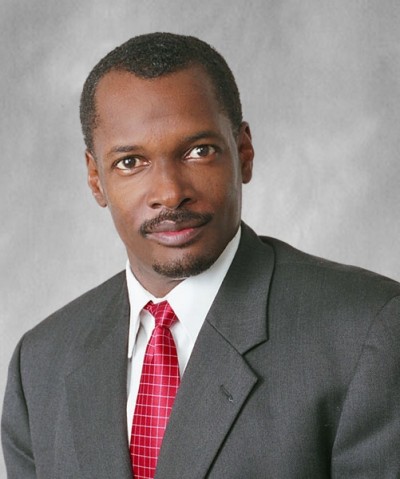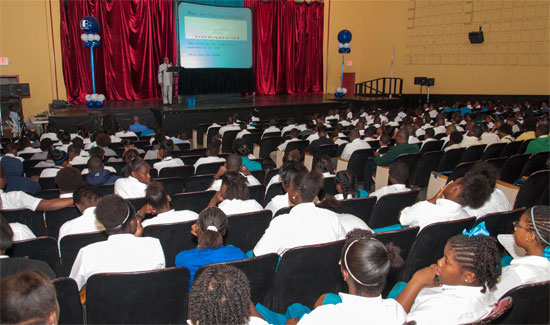
Contribution By Thomas Desmond Bannister On A Bill For An Act To Amend The College Of The Bahamas Act At The Hon. House Of Assembly 28th November, 2011
Mr. Speaker, I rise to move for the Second reading of a Bill for an Act to amend the College of the Bahamas Act.
Mr. Speaker, I would wish to take a few minutes to assure the public that the fire at the A.F. Adderley Junior High School last night was confined to a single classroom, and that school will go on as scheduled. I commend the dedicated officers of the Fire Branch of the Royal Bahamas Police Force for responding quickly, thereby preventing the spread of the fire and I thank A.S.P. Butler for his outstanding leadership at the scene of the fire. Parents and students may be assured, Sir, that the Ministry of Education will respond proactively to ensure that repairs are effected as quickly as possible.
Mr. Speaker, I seek your permission to refer to my notes as I make this contribution; and I wish to observe in passing, Sir, that this beautiful portfolio in which I proudly brought my notes here today and this passport case are gifts from the children of the R.N. Gomez All Age School in the Berry Islands. I commend the school under the leadership of Principal Cleveland Ramsey, Sir, for winning their first district debate championships to go along with their National Arts Festival title; and I thank Rev. Butler and my little buddies Tevineka Young and Tasshena Wellington for their kindness and thoughtfulness.
Mr. Speaker, the College of the Bahamas was established by the College of the Bahamas Act, 1974, and has been our premier tertiary institution ever since. Since 1974, the College has provided an opportunity for thousands of Bahamians to secure a College degree, and the graduates of the College have made their presence felt in all spheres of professional endeavor throughout the Bahamas.
Section 8 of the Act established the Council of the College, and vested “the government, control and administration of the College” in the Council. In 1995 the Act was repealed, and Parliament passed a new College of the Bahamas Act. At that time, Sir, the provisions of section 8 were amended to extend and better define the powers of the Council; however, “the general direction and control of the College” remained vested in the Council.
The 1974 Act provided for a Council of nine persons inclusive of the President. Six of those persons were to be appointed by the Minister in his sole discretion. The Act had a number of shortcomings, such as the power of the Minister to “revoke the appointment of any member of the Council”, which was clearly inconsistent with the provision of the Act which provided that the Principal of the College would be a member of the Council.
The 1995 Act sought to remove such defective provisions, and in the process increased the Council membership to eleven. The Act also stripped the Minister of much of his discretion, thereby promoting the independence of the College.
The Council now consisted of the President; two public officers; a student of the College selected by a process determined by the Student government; a faculty member selected by a process determined by the faculty union; the President of the Alumni Association; and five persons representing trade unions, financial, industrial, commercial or other institutions and professional organizations and members of the public.”
Moreover, instead of the Minister being permitted to dismiss Council members at will and in his sole discretion, the Act provided for the Governor General to declare the office of a Council member vacant where that person was unable or unfit to discharge his duties; was incapacitated by physical or mental illness; had become bankrupt or made arrangements with his creditors or had been absent from meetings without permission for more than three consecutive months.
Mr. Speaker, the 1995 Act sought to amend a provision which permitted Council members to serve ad infinitum….forever and forever. Such provisions, Sir, usually lead to the constant reappointments of the same persons to posts over and over again; and indeed, Sir during that period distinguished Bahamians served on the Council for periods of 8, 9, 10, 15 and 22 years. While their service is noteworthy, and deserves the highest commendation, Sir, it was appreciated that statutory term limits should be applied so that the Act and not the discretion of a Ministers will determine the maximum period of service for Council members.
The 1995 Act adopted the exact same language as the 1974 Act by providing that “A member of the Council other than the President shall hold office for a period not exceeding three years”; however, it differed from the 1974 Act by providing that Council members “shall not be eligible for re-appointment after two consecutive terms”. In the 1974 Act the fact that the meaning of the word “term” was not defined created a minor legal issue which was only academic in nature, since whether a term was one year, two years or three years, members were still eligible for reappointment.
In the current Act, the non definition of what a “term” is has raised some concern, and I wish to thank the President of U.T.E.B. for bringing it to our attention. One could well say that any ordinary sensible person who looks at the provision would say that a “term” is three years, and therefore Council members can serve up to nine years in office. It may, however, be argued equally persuasively that since the Act provides that members “shall hold office for a period not exceeding three years” that a term must be for a period of one year, and the maximum period of service for a Council member is three years.
An additional concern is that the provision that limits reappointment after two consecutive terms does not really set an outer limit on the service of Council members, since it does not limit persons serving single non consecutive terms ad infinitum.
The current amendment seeks to address both concerns by providing that:
“A member of the Council, other than the President,
shall be appointed or re-appointed for a minimum of two years:
Provided that a member of the Council shall not serve for more than the maximum period of six years or more than three consecutive terms”
This new provision sets a definite outer time limit of a maximum of six years of service for Council members, thereby ensuring that the validity of the acts performed during their time of service to our country cannot be questioned by reason only of the length of their tenure in office.
Mr. Speaker, I close by first commending all of those who have given of themselves so freely to serve on the College Council. Mr. T. Baswell Donaldson currently chairs the Council, and he and the other members continue to give back to our developing College.
Under their tenure, sir, we have seen the number of graduates rise to new heights in 2011 to 288 with Bachelor degrees; 111 with Associate degrees; 26 with diplomas; and 17 with certificates’ for a total of 442 graduates this year. This represents not only a new record number of graduates, but also a record number of bachelor degrees; it can only mean a brighter future for education and for our youth.
Today, Mr. Speaker some 66.3 percent of C.O.B. students are enrolled in Baclaurate degree programmes, which represents a huge increase over the past five years. Additionally, Sir, College faculty are able to boast of their extensive research and publications; and may also be proud of the increased male enrollment, even though 26.3 percent is still too low. However, the progress is to be applauded, and all of us ought to encourage our young men to aspire to improve their education.
Mr. Speaker, the College ought to be proud of it’s new infrastructure such as the new Harry C. Moore Information centre, and the New Northern Bahamas Campus, which will both enhance educational opportunities for more Bahamians.
We anticipate that the College will be encouraged to continue to reach out to the family islands with more innovative offerings such as the much aticipated Bachelor in Maritime Studies Degree and the Bachelor of Science Degree in Small Island Sustainability.
In the interim, however, Sir, the College ought to be commended for launching these innovative and highly relevant programme offerings together with the new Master of Business Degree, which was launched in 2010 and is the College’s first graduate programme, which is scheduled to see it’s initial class of fifteen outstanding professionals students in 2012.
In order to move on to University status, Sir, the College must have accredited Graduate programmes. I, therefore, applaud them for launching the new Master of Science Degree in reading with Inclusive Education this year. Twenty one students are enrolled in this highly relevant initiative, Sir, and I’m pleased to say that the Ministry of Education has provided funding for all of them.
Mr. Speaker, the Resolution before us today will vest title to four parcels of land in the College of the Bahamas, thereby enabling the College to control it’s destiny even more. These are:
- 30.543 acres on Poincianna Drive;
- 6.999 acres on Tucker Road and Thompson Boulevard;
- 5.82 acres on Gregory Street and Moss Road; and
- 20.25 acres comprising the Gerace Research Centre on San Salvador.
Mr. Speaker I conclude by saluting the memory of a brother and sister who both dedicated their lives to the service of our country. The work that they have done and the service that they have given live on and may be seen daily in the lives of thousands of Bahamian professionals. Mr. Speaker, it is no coincidence that between them Bishop Michael Eldon served twenty two years on the College Council, the longest period of service in the history of the Council; and Dr. Keva Bethel served sixteen years, the second longest period in history. Their combined service of thirty eight years on the Council of the College of the Bahamas will never be eclipsed. The work that they have done to improve education in the Bahamas speaks in loud volume and leaves huge legacies for them as much as it benefitted the Bahamas.
Sir, I move that the Bill be read a second time.



